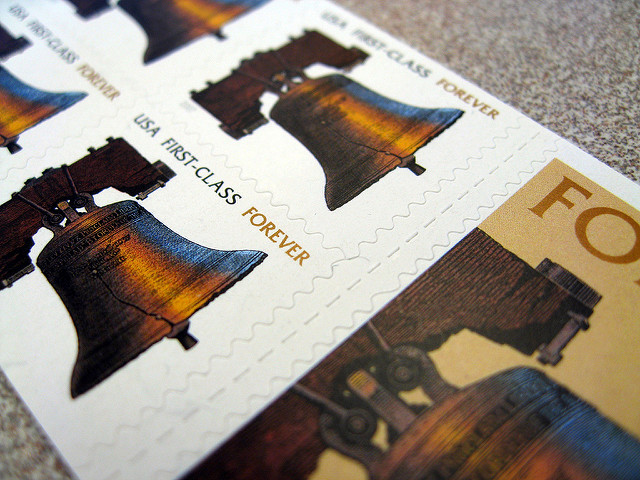Writer / Kate Rhoten
I’m sure you’ve heard the saying, my two cents worth. In April of this year, you did get two cents back from the United States Parcel Service. Did you miss that bit of news? It is likely you pay most of your bills through online bill pay or drafts out of your checking account. This makes having stamps not that big of a deal.
The price of a single stamp has gone up by a penny or two each time the increase happened over the last 20 years. The recent decrease is only the third time the cost of mailing a letter has been reduced since the Civil War – the last time was July 1919.
It’s like a bull market that has been around for a long time and has only had three corrections. Think about when the USPS introduced the Forever stamp. It sounded slightly crazy, but if you bought a book of stamps before an increase, you feel like you beat the market.
If you are an infrequent user of stamps, it is possible to have purchased stamps in 2012 or 2013 and made money in theory. In 2012, stamps were 45 cents, and the next year they went up to 46 cents. This is my situation. I have found stamps in a purse that I had not used for quite some time. I had a gain of 20 cents.
On the flip side, if you happened to purchase a book of Forever stamps just before April 10 of this year, you lost on the deal. You may have spent $9.80 for the books based on the January 2014 price increase to 49 cents. But with the recent decrease, your stamps lost 40 cents in value.
I remember when I lived in Phoenix during the ’90s. There was a local radio show called “Beth and Bill in the Morning,” and whenever there was talk about increasing the cost of stamps, Beth would go off on a tangent. Beth would say something to the effect of, “The post office should just jack it up to 50 cents and be done.” They almost did by hitting 49 cents in 2014, but it took them 11 increases over a period of 24 years. Now we see them moving the other way.
You can laugh at me, but when I started thinking about this column, I found it to be a great lesson in buying and holding as it relates to the market. There is not a quick way to make a buck (or a penny as this case) where you can’t just as easily lose.
This is a time where we lost two cents worth rather unexpectedly.





